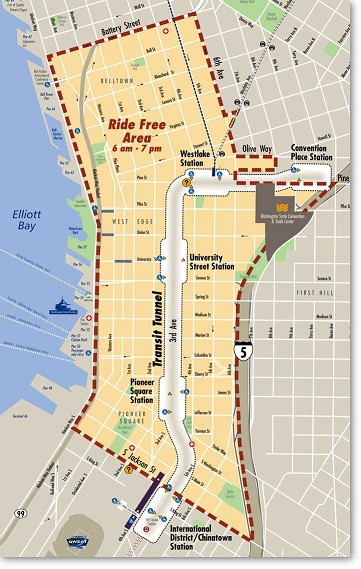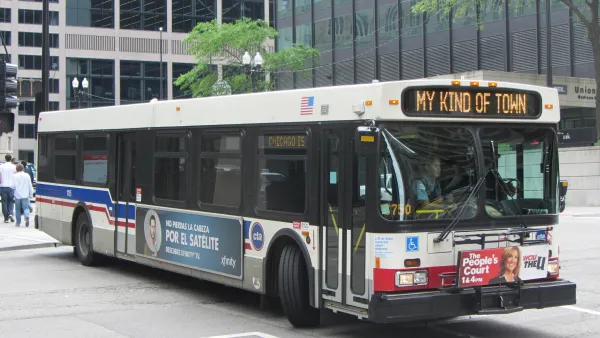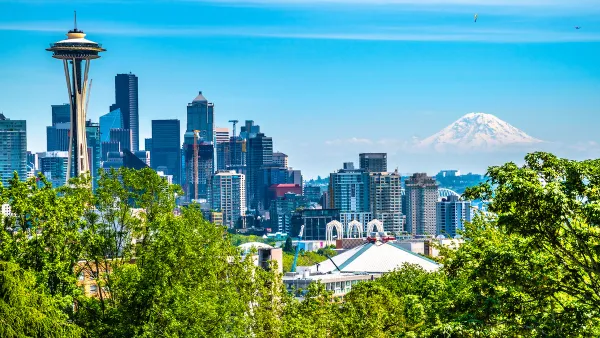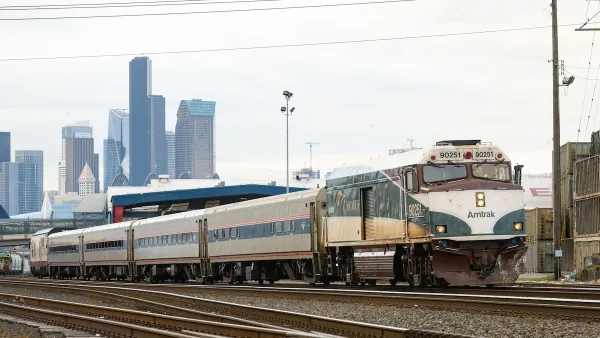A recent "political compromise" forces Metro to phase out the City's highly popular free bus service that serves over 10 million riders per year.
According to Metro, about one-third of daily 9,000 bus riders are unpaid passengers. The rest either have prepaid passes or transfers.
Scott Gutierrez reports:
"Seattle pays King County about $400,000 a year to offset fares that Metro would otherwise collect. But that amount has been the same since the agreement was reached in 1973. It costs Metro about $2.2 million to operate the ride free zone."
"Republicans on the county council, including Kathy Lambert, Jane Hague and Reagan Dunn, had called for doing away with the zone or renegotiating for a higher fee from Seattle. The decision to eliminate the ride free zone helped sway Hague and Lambert to join five Democrats in agreeing to pass a two-year $20 "congestion reduction charge" that will provide about $25 million annually for bus service. The council's Democrats need a supermajority to pass the fee without having to send it to voters, but all four Republicans had been opposed until now. The vote is scheduled for Monday."
Buses in Ride Free Area run north-south from Battery Street to South Jackson Street, and east-west from 6th Avenue to the waterfront.

Analysis: Cybertruck Fatality Rate Far Exceeds That of Ford Pinto
The Tesla Cybertruck was recalled seven times last year.

National Parks Layoffs Will Cause Communities to Lose Billions
Thousands of essential park workers were laid off this week, just before the busy spring break season.

Retro-silient?: America’s First “Eco-burb,” The Woodlands Turns 50
A master-planned community north of Houston offers lessons on green infrastructure and resilient design, but falls short of its founder’s lofty affordability and walkability goals.

Test News Post 1
This is a summary

Analysis: Cybertruck Fatality Rate Far Exceeds That of Ford Pinto
The Tesla Cybertruck was recalled seven times last year.

Test News Headline 46
Test for the image on the front page.
Urban Design for Planners 1: Software Tools
This six-course series explores essential urban design concepts using open source software and equips planners with the tools they need to participate fully in the urban design process.
Planning for Universal Design
Learn the tools for implementing Universal Design in planning regulations.
EMC Planning Group, Inc.
Planetizen
Planetizen
Mpact (formerly Rail~Volution)
Great Falls Development Authority, Inc.
HUDs Office of Policy Development and Research
NYU Wagner Graduate School of Public Service





























